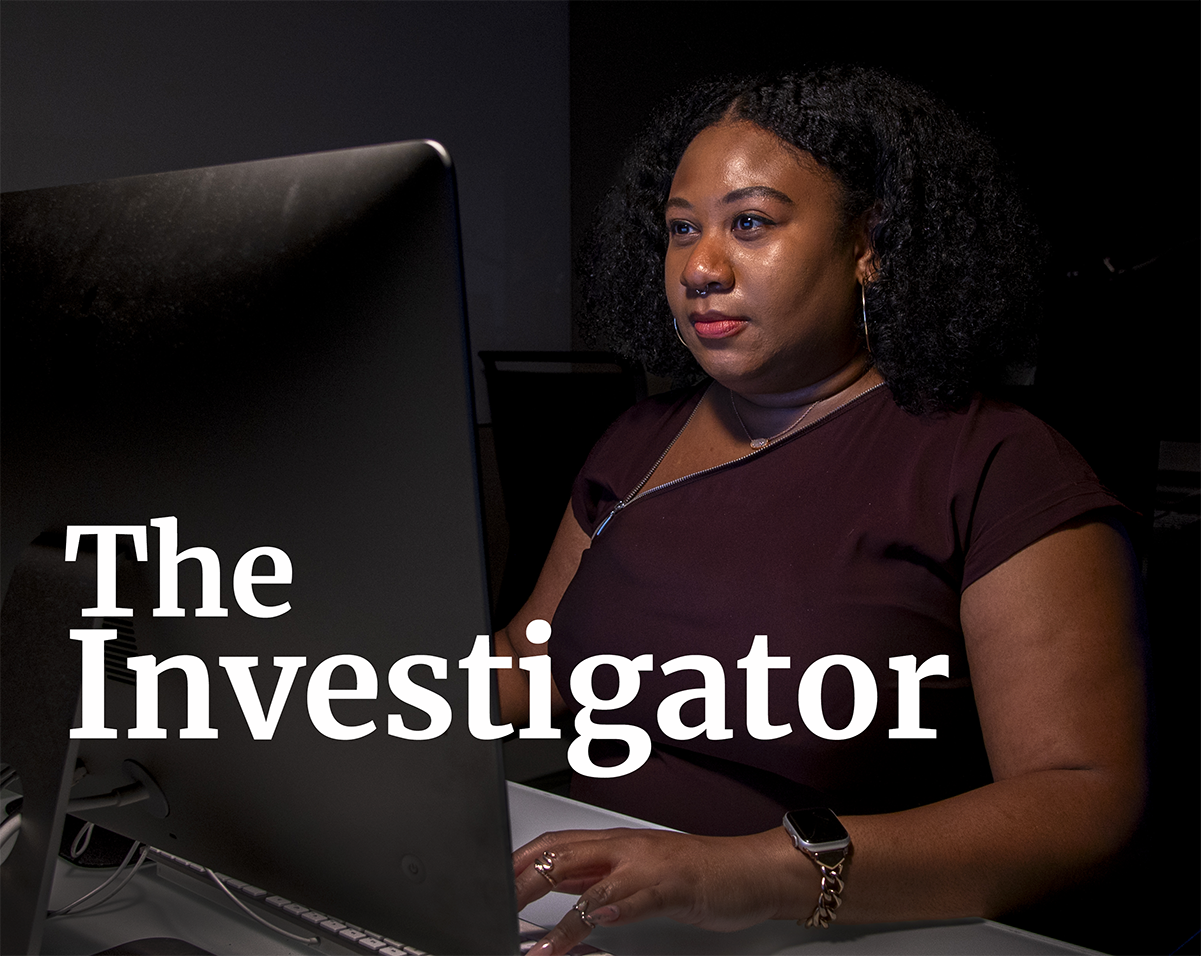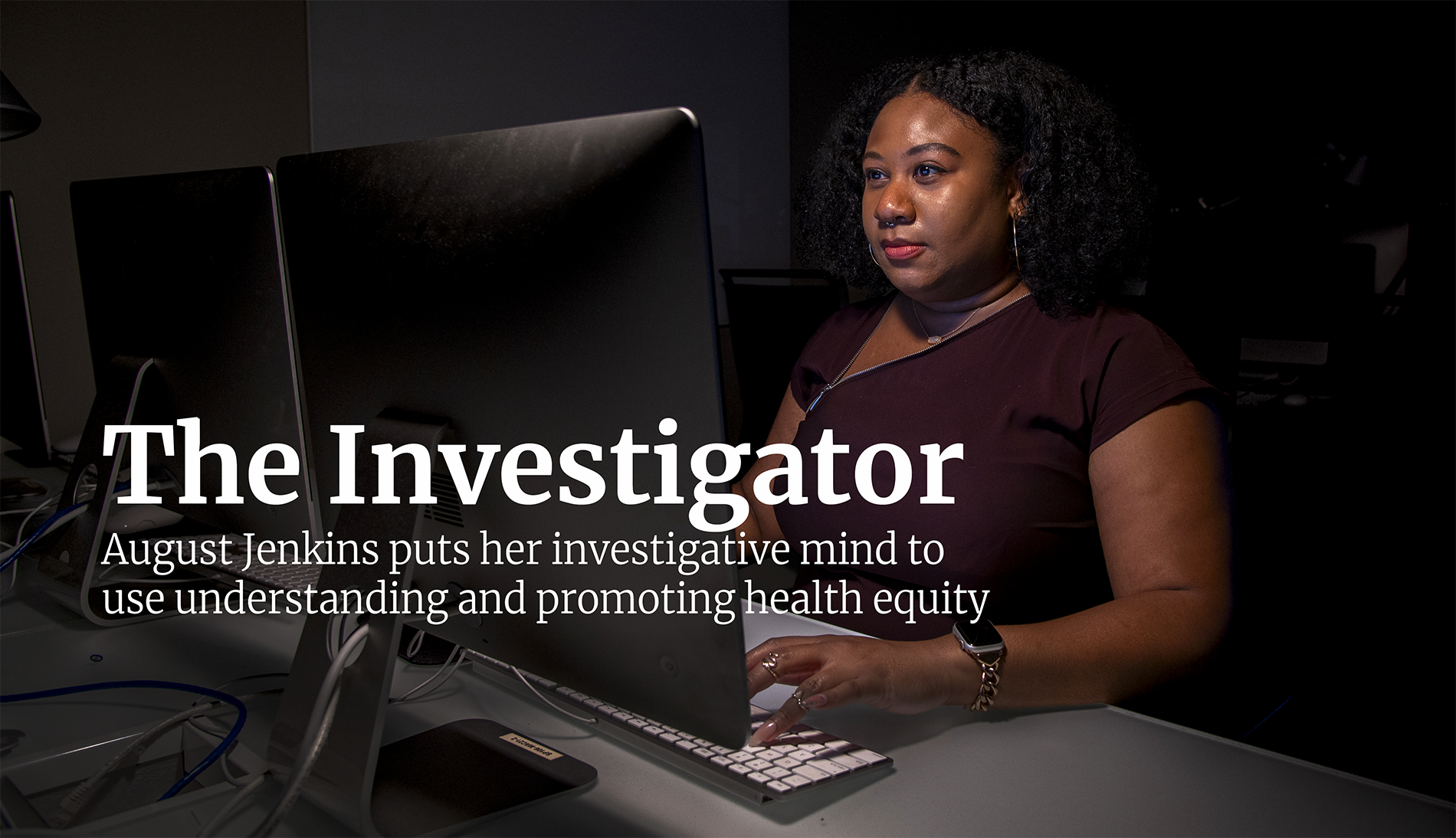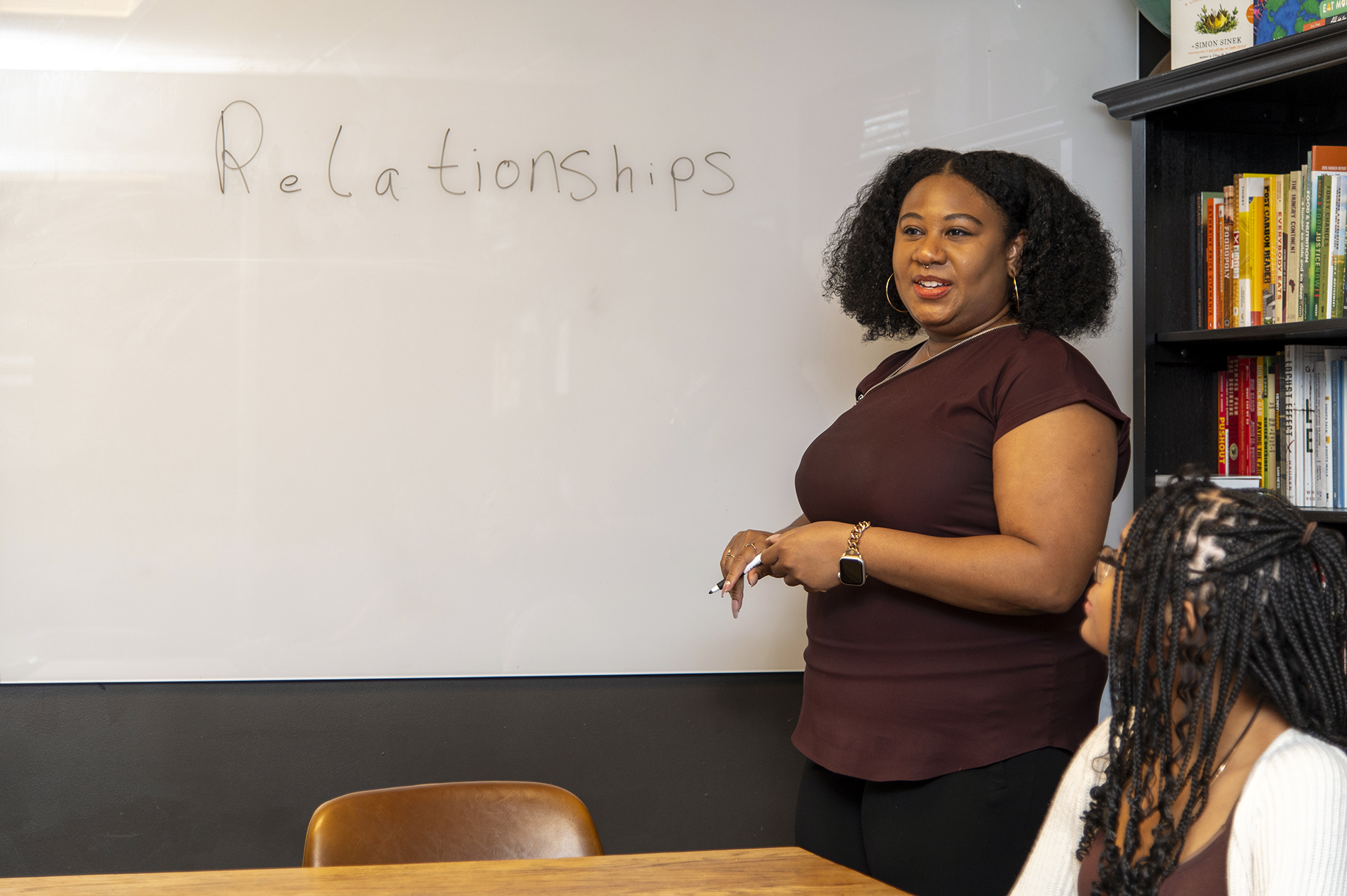August Jenkins Spotlight


August Jenkins puts her investigative mind to use to understand and promote health equity

August Jenkins was an avid fan of the CSI (Crime Scene Investigator) television series throughout her youth. Fascinated by the science behind discovering and analyzing clues to finding criminals, she started imagining it as a career. During high school in metro Detroit where she grew up, AJ, as she is known, joined a forensics club where they solved pretend crimes after school and even competed in a Science Olympiad program where she put her skills up against other would-be CSI agents. From these experiences, she eventually chose criminal justice as her major in college.
Knowing that she is now a scholar in human development and family science may seem like a big switch, but it makes perfect sense. As she realized she was more interested in the psychology behind behavior, and less so about criminality, she changed her focus. Her work investigating how things like racism, community poverty and the like contribute to health inequities among marginalized groups fits well with her investigative mind. We might call her a Community Effects Investigator. And the work fits well with her other drive: making the world a better place. The primary focus of her research is to turn investigations into actionable interventions and policies.
Where it started
Her drive to understand the root causes of health inequities, primarily the psychological ones among Black Americans, as well as ways of preventing them, was driven in part by personal experience. Jenkins’s parents were both teachers and provided a stable, forward-looking and education-centric home for her and her sister. But they divorced when she was in second grade—a breakup she said was agreed upon by both her parents as the best for everyone’s well-being because of her father’s emerging mental health struggles.
But despite his difficulties, he was still a devoted father, and Jenkins stayed connected to him through his highs and lows, including an accident that left him paralyzed. “Despite all of his challenges,” she said, “you never heard him complain, or talk about any of his difficulties, and a lot of time he ended up inspiring many other people.”
That experience seeing her father and everyone connected to him deal with the mental health care system along with the challenge of the mental health issues themselves turned her focus from crime fighting to problem solving.
When she realized in college that helping people rather than just managing them in the criminal justice system was what motivated her, she changed her major to psychology with the idea that she might eventually do some kind of counseling work directly helping people.
An interest in cognitive science led her to minor in linguistics, and a class in sociolinguistics in particular, is what further developed her interest in how social experiences affect individuals.
“How people speak, and then how that has implications for their social interactions and status,” she said became fascinating to her. When she decided to go to grad school, she thought combining these social-linguistic tools to understanding social forces with psychological ones could be a meaningful path of inquiry.
Finding the graduate program in human development and family studies at Penn State helped shape her focus further. They took “a holistic but also systemic view of things,” she said, by focusing on health, but also, how health is affected by development across the lifespan. She was sold and earned her master’s and doctorate there.
In her new position at Auburn, Jenkins will teach an undergraduate course on adult relationships before tackling a graduate course later.

A research focus
The experience of studying at Penn State heightened her interest in research over direct clinical experience more by deepening her understanding of methodologies, but also, new avenues of investigation.
Her dissertation examined the bidirectional associations between relationship adjustment and emotional well-being among Black Americans. Later work began looking at contextual factors, like neighborhood effects, that contribute to relationship and psychological health.
As she neared graduation, she considered several options. Social service jobs had their appeal, and she investigated think tanks where there was a chance her research might affect policy more directly. Always an option, Jenkins had pause about going the academic job route having watched her mother, the schoolteacher, meet the demands of being in education.
Then a postdoc at the University of Illinois caught her eye.
She said they wanted someone who came with a certain type of lens and priorities to add to the department and were interested not only in someone to do research but also turn that work into direct impact. The combination was irresistible.
She said the faculty treated her like one of their own. She attended faculty meetings, collaborated with other faculty, developed a course, and generally got a taste of what faculty life and work might be like. It was different than what she imagined. She saw in it the opportunity to do the kind of research she had become passionate about while being part of a collaborative community of scholars.
Then Auburn University came calling. After much thought and prayer, she concluded that, “this was the place I was supposed to be,” she said. “The thing I was supposed to be doing.” Jenkins started her first appointment as an assistant faculty member on the faculty of Human Development and Family Science at Auburn this fall.
The next chapter
Jenkins is starting her career after a year of major transitions. From postdoc to faculty member, a whole new town, the death of her father a year ago, and the death of her beloved grandfather just recently, she is truly starting a new chapter in her life.
That chapter is focused on investigating Black mental health and relationships and how they are influenced by different power systems, racism most specifically, but also how they intersect with other community and social systems.
“For a lot of stigmatized, minoritized populations and subgroups, there are so many barriers to being able to be well individually and relationally,” she said. Uncovering the root causes and connected processes that sustain those unhealthy outcomes is her investigative mission. Turning that research into “ways to disrupt the connections and as well as highlight positive ways to promote wellness and well-being,” she added, is her direct service goal.
The pivot from criminal justice to social justice is complete. Now the work begins.
Jenkins benefited from mentorship throughout her educational experience and hopes to return the favor in her career.

Story by David Pollock, Director of Digital Resources and Interventions at CFR. Photos by Greg Curry, Auburn University.
